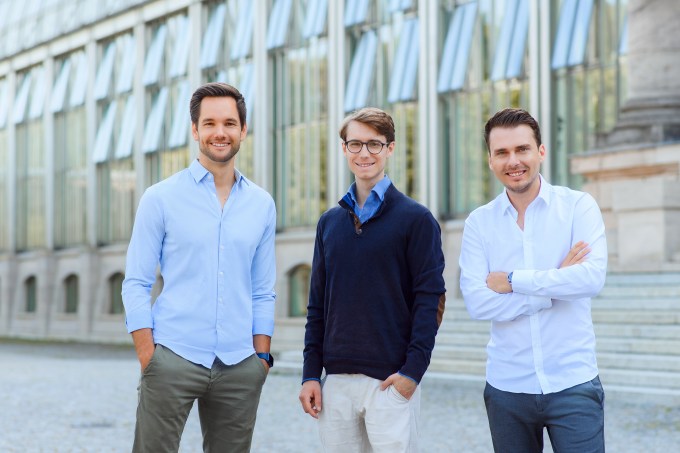The healthcare industry is witnessing a crucial transition as it moves away from outdated legacy systems. A Munich-based startup is positioning itself at the forefront of this evolution by developing an innovative end-to-end administrative system powered by artificial intelligence and cloud technology. Recently, the company announced a significant funding round of €30 million (approximately $31 million), bolstering its growth trajectory.
Sequoia Capital is spearheading the Series A funding, backed by previous investors from the startup’s seed round. This includes contributions from firms such as Revent and High-Tech Gründerfonds, alongside private investors who recognize the potential of modernizing healthcare infrastructure.
While detailed financial metrics remain undisclosed, the startup’s success is underscored by its substantial growth achieved on just €5 million in earlier funding. So far, it has secured 12 clients within Germany, including prominent institutions like San Kliniken AG, Ludwig-Maximilians-University Hospital in Munich, and Hannover Medical School.
According to the CEO, the efficiency of their operations has been a key to success. Their dedicated team comprises not only talented engineers but also eleven medical professionals who provide invaluable insights into the healthcare sector.
The initial objective for securing this latest round of funding involves accelerating product development and expanding into new international markets. The company is already exploring opportunities with a hospital chain in Spain, as well as potential partnerships in France and the UK.
The Pandemic’s Role in Evolution
Avelios is revolutionizing healthcare systems by addressing the fragmentation that has long plagued the industry. Systems have typically been developed as isolated platforms designed for specific tasks, leading to integration challenges and inefficiencies. The aspiration now is to create a holistic solution that integrates all aspects of hospital administration.
Ironically, the inception of the startup was sparked by the pandemic’s impact on healthcare operations. During the COVID-19 crisis, one of the co-founders, a practicing physician, witnessed firsthand the inadequacies of the German healthcare system.

Chronic inefficiencies came to light as he navigated hospitals, manually tallying patients and reporting data. Seeking a solution, he collaborated with a software engineer, who had expertise in deep learning, to develop a more efficient data reporting system. However, as they explored their ideas, they encountered the daunting realization that outdated hospital technologies hindered their ability to collect requisite data for AI applications.
Recognizing their shared vision, they enlisted the support of a third co-founder, aiming to provide a structured approach to healthcare technology. They faced a pivotal choice: should they merely address symptoms by creating piecemeal solutions atop existing frameworks, or tackle the underlying issues by redesigning the hospital information system entirely?
They ultimately opted for the latter, fully aware of the challenges it posed, believing that starting from scratch would enable comprehensive solutions and pave the way for future AI implementations utilizing well-structured data.
After years of dedicated development, the startup successfully launched a fully integrated administrative system, which encompasses electronic health records, billing, clinical data, lab results, and collaborative platforms for healthcare professionals.
The COVID-19 pandemic not only highlighted systemic weaknesses but also catalyzed funding incentives aimed at enhancing healthcare software. Additionally, the evolving healthcare landscape has presented Avelios with tactical advantages as they engage in discussions to secure partnerships with prospective clients.
A significant factor in this evolution involves the strategic shifts by large legacy providers, particularly in adopting cloud solutions. As these enterprises phase out their outdated systems, hospitals and clinics must take action to adapt, thereby creating opportunities for innovative companies like Avelios.
Moreover, the growing demand for AI-driven healthcare solutions necessitates that organizations overhaul their data architectures. Legacy systems are ill-equipped for effective AI integration, thus incentivizing hospitals to modernize.
The interest from investors bloomed as Avelios remained diligent in its development. An investor took note of the startup’s quiet but significant achievements within a competitive landscape. The rapid acquisition of notable clients surprised many and illustrates Avelios’s promising future.
However, navigating the complexities of healthcare modernization requires careful consideration. Hospitals often hesitate to replace entire systems preemptively due to operational costs. A sobering cybersecurity report highlighted that over 73% of hospitals reported using outdated systems, with many still leveraging decades-old software. These circumstances further underline the pressing need for modernization.
Avelios has embraced a modular approach, allowing clients to gradually adopt new technologies without disruption. This flexibility can involve implementing administrative solutions first or introducing billing systems before expanding to broader functionalities. In contrast to existing monolithic solutions, this methodology positions Avelios to overcome common implementation pitfalls faced by healthcare organizations.


